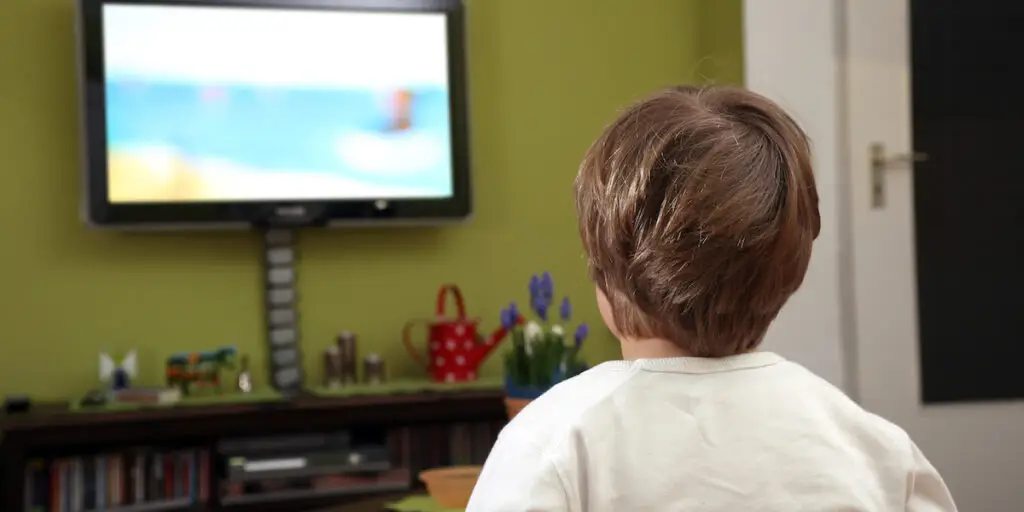The following is excerpted from an online article posted by MedicalXpress.
Over the past 30 years, the number of television programs targeting infants has been increasing. Between 1997 and 2014, screen time doubled among children aged 0 to 2 years.
A new study, published in Frontiers in Psychology, has examined the impact passive screen use has on a young child’s cognitive development. It found that screen exposure—whether that be from a TV or mobile device—can be beneficial, depending on the context in which it’s viewed.
Researchers from the University of Portsmouth and Paris Nanterre University, France, have analyzed 478 studies published in the past two decades. Their findings found exposure to television early on may be detrimental to play, language development and executive functioning, particularly for young infants.
Dr. Eszter Somogyi, from the Department of Psychology at the University of Portsmouth, said, “We’re used to hearing that screen exposure is bad for a child and can do serious damage to their development if it’s not limited to say less than an hour a day. While it can be harmful, our study suggests the focus should be on the quality or context of what a child is watching, not the quantity.
Studies also show screen time is more beneficial to a child if a parent or adult is present, as they can engage with them and ask questions.
“These differences in the viewing context play an important role in determining the strength and nature of TV’s impact on children’s cognitive development. Watching television with your child and elaborating and commenting on what is viewed can help enhance their understanding of the content, reinforcing their learning during educational programs. Co-viewing can also contribute to the development of their conversation skills and provides children with a role model for appropriate television viewing behavior,” explained Dr. Somogyi.
While the right type of content can do more good than harm, the study warns watching TV shouldn’t replace other learning activities, such as socializing. Instead, it is imperative to inform caregivers of children younger than 3 about the risks associated with prolonged exposure to screen viewing in the wrong context.
The authors recommend reinforcing contexts that promote learning, such as viewing chosen age-adapted content, viewing with adult supervision, and not having a second device or TV screen on in the background.
Source: MedicalXpress
https://medicalxpress.com/news/2022-09-tv-child-cognitive.html
Find more culture news on HomeWord’s Culture Blog, named in 2022 for the seventh consecutive year as one of the top 50 culture blogs on the planet!




